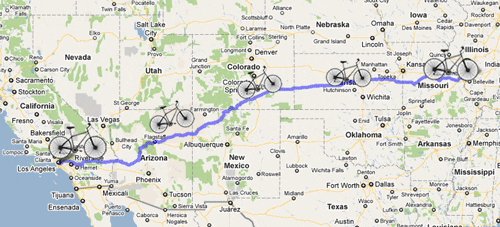By Robert Docter –
I’ve always like the word bold.
I’m not talking about boldfaced type–or someone who might be overly “forward.” I’m talking about the bold part of the word courageous–or the bold part of the word strong–or that part of appropriate risk taking that says bold–or that part of perseverance in the face of despair that speaks of a bold response. I’d like the pages of my life to reflect some broad, bold strokes that communicate and represent enough strength to have accomplished something.
Oh, I’m sure those pages will also have some delicate, faint etching–some tentative trials. They will have some scribbling and disorganization. But, for the most part, I hope they show some courage and consistency–some compassion and “otherness”–some dedication and commitment. These are marks of character that speak of boldness. Yes, I like the word bold. I want to be bold.
I’ve got a lot of the Army in me–the internalization of an ethic. We have in common a major element of our identity, a need to be perceived as “a little different.” I value my uniqueness, and I belong to the Army because of its operational commitment to Christ, and because it is unlike any other Christian church. We share concern for the “lost”–compassion for the poor–caring for the hungry and downtrodden–and we do something about it with boldness.
But has that Army boldness diminished in some ways? Has mine? I wonder.
There is in both the human spirit and in an organizational ethos a direct relationship between caution and success. As success is achieved, in most, caution follows. I assume it’s a protective response to avoid losing what one has gained. I’ve seen it innumerable times in football games. A grand strategy of bold passing and running has resulted in a go-ahead score late in the game. Then, rather than follow the plan that brought success, the coach turns to a very conservative style of play– three safe plays and punt. When the other team has the ball, they change from a stunting defense to the good old “pre-vent” defense. That defense is based on the premise that giving up a few yards is okay as long as we don’t allow any big gainers. What the “pre-vent” defense ignores is that those little yards add up to big yards, and before you know it, the enemy is knocking at your door–ready to score.
I guess choosing caution over bold strategy is like “resting on your laurels.” It seems to me, when “resting” takes place, people get out of shape fast and trivia is elevated in worth. Lewis Carrol helped us explore this as he takes us Through the Looking Glass to meet another little band on the way to “open air.”
The Walrus and the Carpenter
Walked on a mile or so,
And then they rested on a rock
Conveniently low:
And all the little oysters stood
And waited in a row.
“The time has come,” the Walrus said,
“To talk of many things:
Of shoes, and ships and sealing wax,
Of cabbages and kings,
Any why the sea is boiling hot,
And whether pigs have wings.”
For some of us are out of breath,
And all of us are fat!”
Before any growth can take place individually or organizationally, we must feel safe enough to make the leap with boldness. It is all right to feel a need for safety, but we must understand this need and develop the perseverance to confront it in a timely fashion. Safety has many attractions and comforts. If it is not confronted, it can woo us into complacency. We must never be perceived as complacent in the field of social and spiritual reform–overly comfortable in implementing status quo programs, fearful of change. Change is thrust upon us continuously. While never sacrificing the distinguishing character of our guiding beliefs, we must recognize the ever changing demand on the processes we use to communicate and execute those beliefs. This keeps the focus on the big picture and also keeps us in shape.
Stay bold.











